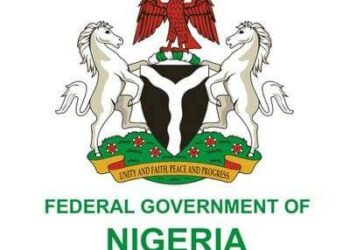Nigeria’s fiscal deficit expanded in January 2025, as provisional data from the Central Bank of Nigeria (CBN) showed that both primary and overall deficits increased compared to December 2024.
The deterioration in fiscal balance was largely driven by a decline in Federal Government Independent Revenue and a reduction in foreign exchange gains, underscoring the challenges in managing the country’s public finances.
According to the CBN economic report for January 2025, retained revenue stood at N483.47 billion, slightly above the N479.21 billion recorded in January 2024, but significantly lower than the N1.57 trillion reported in December 2024.
This sharp month-on-month drop in revenue collection impacted heavily on the government’s ability to cover expenditure, despite modest adjustments in spending.
Aggregate expenditure for January 2025 stood at N1.62 trillion — down from N1.91 trillion reported in December but still higher than N1.44 trillion recorded in January 2024.
The report showed that the government spent N775.68 billion on recurrent non-debt items, while debt service obligations held steady at N696.27 billion.
Notably, capital expenditure remained absent in the data for the second consecutive month, raising concerns about underinvestment in infrastructure and development projects.
The result of this revenue-expenditure mismatch was a primary balance deficit of N437.44 billion and an overall fiscal deficit of N1.13 trillion in January 2025.
Both figures reflect a marked deterioration from December 2024’s deficits of N351.48 billion (primary) and N961.58 billion (overall), signaling mounting fiscal pressure early in the year.
This development comes despite a budgeted revenue target of N1.63 trillion and planned expenditure of N2.40 trillion for the period, suggesting that actual performance fell well short of expectations.
On the outlook for fiscal reforms and revenue diversification, some financial analysts said that Nigeria’s fiscal sustainability depends on ramping up independent revenue generation, streamlining recurrent expenditure, and restructuring debt obligations.
They said that efforts to broaden the tax net, reduce leakages in the public finance system, and implement performance-based budgeting are seen as critical to improving the trend of persistent fiscal deficits.
Also exchange rate reforms and the implementation of cost-reflective fuel and electricity pricing could help boost government receipts in the medium term, though such moves may further test social and political stability.
They stated that the 2025 budget implementation will be closely watched by domestic and international stakeholders as an indicator of the administration’s fiscal discipline and economic reform momentum, particularly amid tightening global financial conditions and increased investor scrutiny.

